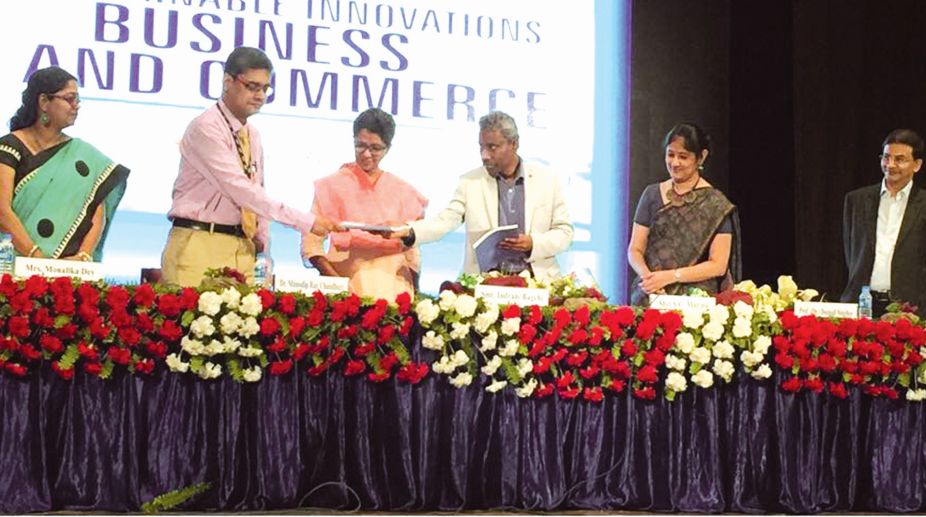RBI asks fintech firms, digital payment cos to ensure responsible innovation
RBI Governor Sanjay Malhotra on Thursday asked fintech firms and digital payment companies to ensure responsible innovation and better compliance.
Given the current state of the Indian economy and its position in the global market, what will it take for the country to be a hub for sustainable innovation?

JD Birla Institute
Innovation and sustainability: In the world as it is right now, innovation, be it in any field, is what is leading the human race towards its next step. The Prime Minister of our country keeps talking about innovation and development; there are novel advances in the field of computing almost everyday; artificial intelligence is no longer science fiction.
It was in this backdrop that the 2018 National Seminar on Innovation and Sustainability in Business and Commerce began. Organised by the JD Birla Institute, department of commerce, it was held at Moira Street, Kolkata, recently.
Advertisement
Deepali Singhee, principal, JD Birla Institute, said in her opening address that the objective is to discuss theoretical aspects and foster an understanding of innovation and sustainability in the field of business and commerce. The two-day seminar saw 19 technical research papers presented on the theme of the seminar, which will be released as a research paper book soon, said Singhee.
Advertisement
The discussion on the topic revolved mostly around defining what innovation and sustainability means in relevant fields of work. SC Murmu, regional director, Reserve Bank of India, said in his opening address that the theme of the seminar is very apt. “The world around us is changing really fast. Businesses are transforming even as we speak,” he said.
Citing examples of important innovative milestones in the course of human civilisation, Murmu said that innovation is something that arises out of a need that must be fulfilled or a problem that must be addressed.
Only then can anyone create or develop innovative answers in response to issues that plague the human race. Murmu’s address set the tone for the rest of the seminar that continued with the keynote speech by Indrani Bagchi, diplomatic editor, The Times of India, which in turn set the scope of the seminar. “The nature of global economy has changed,” said Bagchi.
As she explained this statement, she said that because of the fact that the world has moved on from traditionally innovative economical practices, India can’t be a beacon of innovation to South Asia if it assumes the world’s stagnancy.
Making her point, Bagchi went on to say that there are two types of innovation when it comes to the Indian model. The first, she called frugal innovation (jugaad).
When India’s space center can send outer space missions for less money than the budget of a Hollywood film, that is where “we can claim success for frugal innovation”, said she.
But when Indians have to resort to frugal innovation (jugaad), because of government processes failing its citizens, that is where it crosses the line into being unlawful.
The basic idea that emerged out of the inaugural discussion was that our country is poised to be a leading knowledge economy and all that needs to be done is make sure that our inherent sense of jugaad is guided in the right direction.
Advertisement